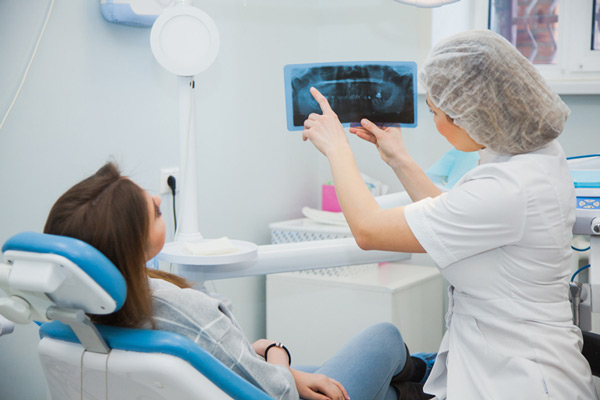Dental Implants and Bone Grafting
Charlotte, NC
 Imagine a confident smile, a bite into your favorite apple, a hearty laugh without any restraints - all of these simple pleasures can be disrupted if you're missing even a single tooth, let alone several. You may be uncertain about how to take the first step toward reclaiming these joys, but at Myers Park Dental Partners, our dentists, Dr. Allen and and our team are here to guide you through the entire process. This tooth replacement journey often begins with two common procedures: dental implants and bone grafting. Both of these restorative dentistry treatments serve to rebuild and restore your oral functionality and aesthetics. Imagine a confident smile, a bite into your favorite apple, a hearty laugh without any restraints - all of these simple pleasures can be disrupted if you're missing even a single tooth, let alone several. You may be uncertain about how to take the first step toward reclaiming these joys, but at Myers Park Dental Partners, our dentists, Dr. Allen and and our team are here to guide you through the entire process. This tooth replacement journey often begins with two common procedures: dental implants and bone grafting. Both of these restorative dentistry treatments serve to rebuild and restore your oral functionality and aesthetics.
What Are Dental Implants?
Dental implants are essentially substitute tooth roots, providing a sturdy and permanent foundation for replacement teeth. Manufactured from biocompatible materials such as titanium, they are designed to fuse with the jawbone through a process referred to as osseointegration. This process can take several months. The result? A secure base that can support artificial teeth, also called crowns. You will no longer have any gaps in between your teeth, just a full set of teeth that look, feel, and function like your natural ones.
What Are the Benefits of Getting Dental Implants?
There are many advantages that come along with choosing to get dental implants to replace missing teeth. Not only do dental implants restore and complete your smile, these cosmetic dentistry restorations also:
| • |
Help restore functionality: Missing teeth can make chewing food difficult. Dental implants help you regain full functionality of your teeth and bite.
|
| • |
Improve oral health: By filling in the gaps left by missing teeth, dental implants prevent bone loss and subsequent shifting or crowding of remaining teeth.
|
| • |
Boost your self-confidence: Dental implants restore your smile, which can drastically improve your personal and professional life. |
Can Anyone Get Dental Implants?
While dental implants are a popular and effective solution for tooth loss, they are unfortunately not suitable for everyone. There are several factors that dentists consider before recommending dental implants to a patient. Good general health is the first consideration. Good gum health is important as well, in order to help support dental implants.
Certain systemic diseases, such as uncontrolled diabetes or cancer, can affect the body's ability to heal and may make dental implants less successful. Similarly, habits like smoking can also negatively impact the success rate of dental implants.
Dental implants require a certain amount of healthy bone in the jaw to support the implant. If a patient has experienced significant bone loss due to conditions like periodontitis or long-term tooth loss, they may not have enough bone to support an implant.
Fortunately, even if you are not a candidate for dental implants up front, our dentists can often help get your mouth and oral health prepared to be able to have a successful dental implant surgery. This can be done through various procedures, the most popular being treating any gum disease first and through the use of bone grafts to strengthen the jawbone if needed.
Bone Grafts
For dental implants to do their job effectively, they need a supporting actor: healthy bone. That's where bone grafting steps in. If your jawbone isn't thick or dense enough, bone grafting adds supplemental material to enhance and fortify the bone. This extra 'graft' encourages the growth of new, healthy bone around it, beefing up the foundation for the dental implant.
What Is It?
Bone grafting is one of the many surgical procedures that also helps treat periodontal disease. A bone graft can help the body grow new bone at the site, helping to restore tissue which has been damaged by periodontitis. During a bone graft, we will fold back part of the gum and clean out any affected tissue. We will then place the bone graft material, which can help your body build new bone.
Eventually, new bone growth will replace the grafting material. It is important to keep your mouth, gums and teeth extremely clean and sanitary as the bone graft is healing. Please promptly contact our dental team if you have any serious swelling or pain.
Types of Bone Grafts
There are a number of types of bone grafts which we may utilize. The first type we will discuss is called an autograft. This is when we use one of your other bones in order to perform the graft. This excess bone is often pulled from the back of your jaw or from the bone in your hip. One of the common aftereffects is discomfort at the site where we took the bone.
Another option is an allograft. We may choose this procedure only if an autograft is not an option for you. This is when we source a piece of human bone from a cadaver. The surgery is quite safe and fairly affordable for most people. Furthermore, the risk of infection is less with a cadaver bone, simply because the bone is not from your body.
According to the American Dental Association (ADA), an alloplast is when the surgeon uses a synthetic bone. These are made of hydroxyapatite, phosphorus, and calcium. This option has little to no risk for infection and is capable of healing small inconsistencies without help.
Aftercare
Before the bone graft procedure, you will be administered general anesthesia. This will mean that your aftercare will be a little bit different, and you will need someone to be able to drive you home from the procedure. Anesthesia is important because it helps you not feel anything during the procedure. However, once the medication wears off, postoperative discomfort may occur and is normal. The discomfort will subside after a few days but may continue for a few weeks.
Myers Park Dental Partners - Your Partners for Dental Implants
For many patients, a bone graft can be a highly beneficial procedure, preparing and allowing your gums and jawbone to be strong and healthy to have dental implants placed. To find out more information about dental implants and bone grafts, or to set up an appointment with us for a consultation, please contact us by calling (704) 332-2532 today. |
